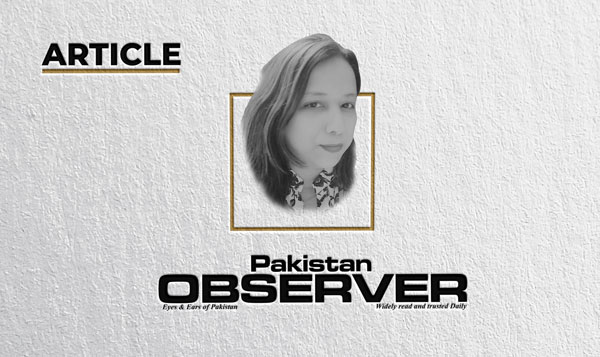Joyland: Pakistan’s Oscar worthy contender
THE movie, ‘Joyland’, from Pakistan has just made it to the Oscar shortlist. Congratulations are in order for all those who have worked hard on this amazing production.
A hotbed of incendiary discussion after ban (now lifted), a contentious debate is still pulsating throughout the nation.
Joyland is Directed by Saim Sadiq, Written by him and Maggie Briggs; alongside names such as Sarmad Khoosat, Apoorva Charan, Sabiha Sumar, Lauren Mann, Oliver Ridge, Kathryn Moseley, amongst others, as Producers.
Moreover, in great support, is none other than Malala Yousafzai as the Executive Producer of this movie (Nobel Peace Prize winner & President of Extracurricular Productions).
The youngest Nobel Laureate has likened the movie as a creative art piece. This, in a country where art films are rarely appreciated.
Joyland has already enjoyed international acclaim winning two awards, with a standing ovation received at the Cannes Film Festival this year.
The greatly misunderstood storyline has been a rather difficult conversation for the Pakistani society to explore.
Reflecting through decades of inbuilt socio-cultural boundaries, Joyland challenges societal norms.
It also gives an insight into culturally-implanted patriarchy. Joyland reaches into the lives of the Rana family, living in Lahore, Pakistan.
It follows the story of a married man, ‘Haider’, who falls in love with ‘Biba’, a transsexual. It simultaneously weaves in other very poignant relationships existing within the Pakistani family unit; even extending to the neighbourhood dynamics.
The movie certainly highlights nonlinear relationships, not considered acceptable to Pakistani society.
It also foregrounds intense discrimination against the transgender community in Pakistan through its script.
Historically, the transgender community in Pakistan has been muted out of existence by rejection, often facing violence and threats to their safety.
Interestingly enough, the ban on the movie raised a call to almost reverse the goodness of the ‘Transgender Act of 2018.
’ One of the most progressive legislations in Pakistan; it gave the third-gender, an identity of their own, along with citizenship rights – as well as discouraging any violence or harassment against them.
Had the ban on the movie remained, it would have ironically gone against the very principles of the ‘Transgender Act’.
It would have also taken away any freedom of expression and rights of citizens to free speech through art.
One thing that unfortunately got sidelined by the debates was the entirety of the movie as a quality production and an Oscar worthy contender.
The art piece produced was truly brilliant. Each character, every artist, each scene, be it from lines of delivery or cinematography was thoughtfully executed.
Joyland follows a certain momentum that drags the viewer inside the interlocking fragile relationships.
All the while touching on the intricacies and power play of members living in a joint family. Each character portrayed a full and frontal, raw expression of humans who pull the audience into their world.
One could feel moments of yearning; needs and wants all writhing to be freed out of cultural shackles.
Most of the entire movie successfully captured the hopelessness of not being able to break out of these constraints.
All this, edging slowly to the crescendo of events and tragedy that follow the course. Another allegation was that the film was trying to promote a LGBTIQ+ agenda considered immoral within Pakistan by a Muslim majority, which was not true.
The art film was simply a portrayal of life in itself. It also highlighted the transgender community as living, breathing humans who exist, very much so, within the fabric of the nation.
Two-time Academy award and Emmy winning filmmaker, Sharmeen Obaid-Chinoy, who is chairing the Pakistani Academy Selection Committee, alongside names such as Ali Sethi and Omar Shahid Hamid from Pakistan, is very enthusiastic about the choice of the entry.
If it wins, it will certainly create a lasting impact on generations to come. One thing is for sure, a revolution in dialogue which has begun, is certainly moving forward for Pakistanis. And Joyland ups the ante for it all.
—The writer is contributing columnist, based in Islamabad.










